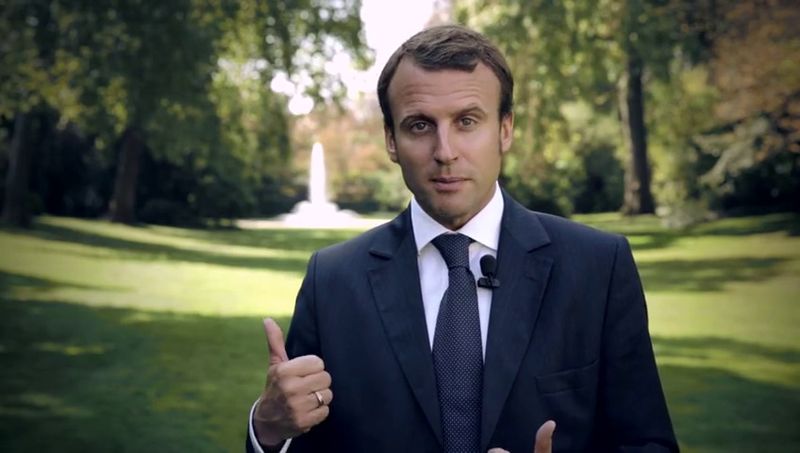
Emmanuel Macron will most likely win the French presidency in the second round of the election process, much to the delight of those quaking in fear of populism and the threat it poses to the European Union, globalisation and NATO. The barometers of the status quo—the stock markets and the currency traders—both responded strongly and favourably to Macron’s emergence as frontrunner from the first round. But the sense that a high water mark has been reached and that reaction to the failures and disappointments of the international institutions of the post-Cold War era is receding is premature.
While the pro-globalization economist Macron topped the first round poll with 23.8% of the vote, the more significant figure in the longer term is the 46% that went to Eurosceptic candidates. On the basis of the current polling results, Macron has a 20% lead over Marine Le Pen and even taking account of early stumbles in his final campaign, expectations are that he’ll win. Yet there’s still a chance that the result will be much closer than anticipated if antipathy to Macron results in a low turnout of voters for the second round.
On top of the Eurosceptics’ reluctance to endorse the internationalist neoliberal project of Macron, he remains vulnerable over perceptions of elitism and overconfidence and his past close association with the unpopular Hollande. His main advantage remains not his own project or popularity but the suspicion with which many French voters view the extremism and uncertainty of the National Front.
Given that Macron is most likely to be the next French President, it remains wishful thinking to believe that his election will represent a victory against the Eurosceptics and nationalists. Macron will be arguably the most constrained and powerless president of the Fifth Republic. Depending on the outcome of the June National Assembly elections he could finish up as a largely ceremonial figurehead.
France’s constitution provides for a separation of powers between the executive (the president and the government), the legislature (the National Assembly and the Senate) and the judiciary. The president, as head of state, appoints the government—the prime minister and ministers of state. In this system only the National Assembly, and not the president, can dismiss the prime minister or the government. This ensures that generally it is critical for prime ministers to have the support of the majority of the National Assembly.
Elections for the parliament follow the presidential election and deputies and senators are also elected for five years. One of the unusual features of Macron’s En Marche progressive movement is its disdain for traditional politics and party structures. However, his lack of a formal political base and the combination of widespread Eurosceptic sentiment and resistance to many of the reforms he’s signalled could produce a National Assembly that’s at best opposed to many of his proposed initiatives and at worst hostile to his basic philosophy and platform.
The initial optimism over the prospect of a Macron presidency could soon dissipate—particularly if Le Pen cuts Macron’s campaign lead in the final days and generates momentum for the National Front going into the National Assembly elections. Moreover, those French electors who reluctantly vote for Macron to thwart Le Pen’s presidential bid are likely to default in large numbers back to their traditional parties.
It’s worth recalling that far left candidate Jean-Luc Mèlenchon received 19.5% of the vote in the first round and that his supporters share Le Pen’s anti-EU and globalization platform. Similarly, Macron’s National Assembly candidates are not expected to secure many of the Republican Party’s centre right voters who gave Francois Fillion 19.5% in the first round. The 6.2% of voters who supported the Socialist Party’s Benoit Hamon are also unlikely to support En Marche candidates.
The probable outcome is a neophyte politician, in his first elected office as President of France, forced to work with a hostile National Assembly—or at least an Assembly with no clear governing coalition. There seems little prospect given the likely state of the National Assembly that Macron will be able to appoint a prime minister sympathetic or amenable to his reform program.
Apart from being an important European economy and a force in European politics, France is a key member of NATO and a significant independent player in the security of its former colonies in Africa. This isn’t a good time for France to be hobbled with an ineffective President.
The challenges of economic revival, Brexit negotiations, together with the threats of Russian adventurism, terrorism and illegal immigration will demand strong leadership from France.

